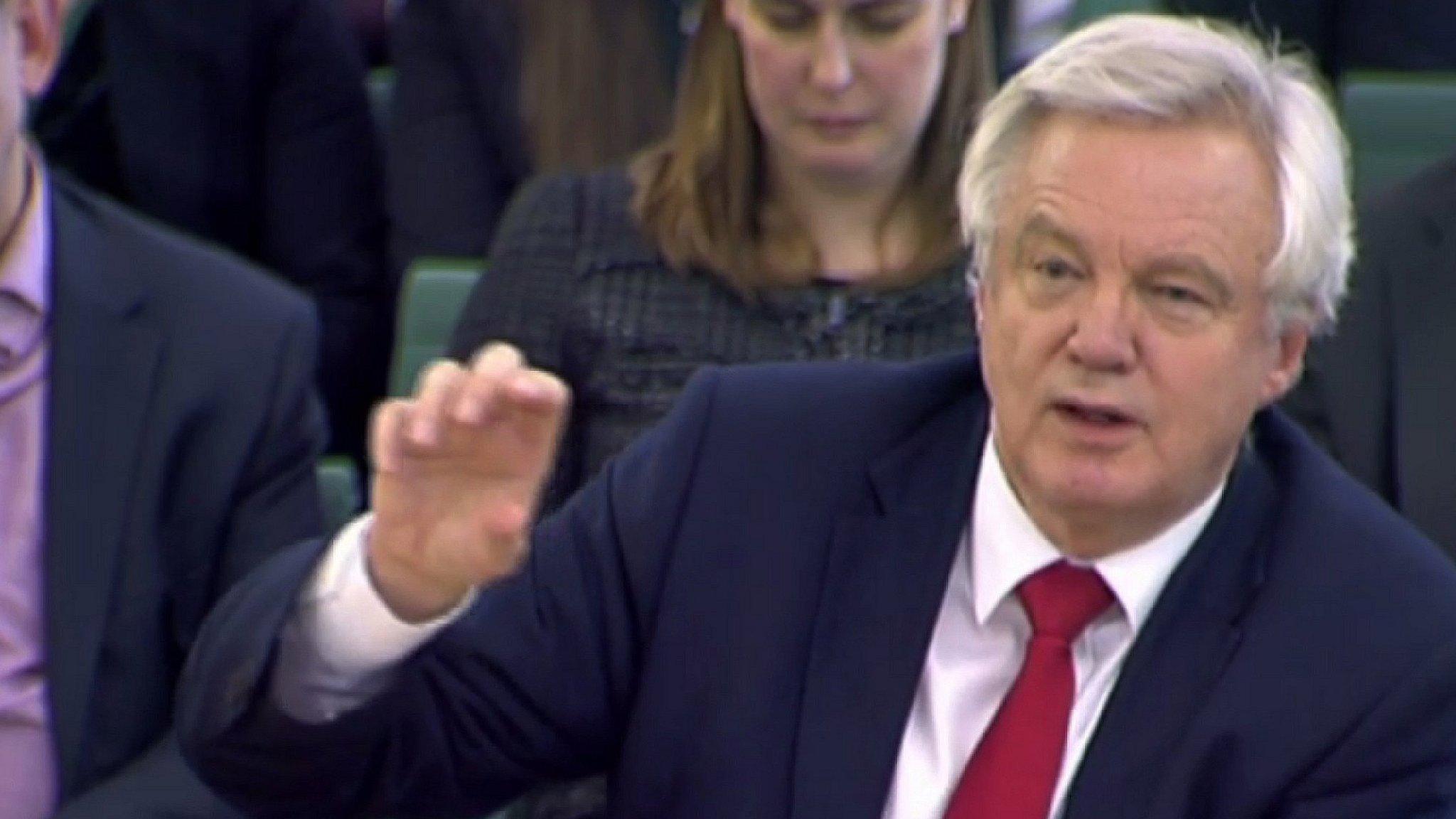Brexit: EU leaders discuss UK's exit without Theresa May
- Published
Theresa May welcomed the Brexit talks, as she arrived at the summit
The EU's 27 other leaders have met without the UK's Theresa May to discuss their Brexit negotiation plans.
They met informally at the European Council summit in Brussels amid tensions over the handling of talks.
Downing Street said Mrs May had not sought to be present at that meeting and it showed the EU was facing up to the reality that the UK was leaving.
It comes as the UK government plays down a suggestion that negotiating a UK-EU trade deal could take 10 years.
The BBC understands the UK's senior diplomat in the EU warned ministers that the European consensus was that a deal might not be done until the early to mid-2020s.
Arriving in Brussels, Mrs May was asked about the 10-year claim, but concentrated her answer on the subject of immigration, which is what the EU leaders have focused on during a chunk of their one-day summit.
She added that a smooth UK exit from the EU was "not just in our interests, it's in the interests of the the rest of Europe as well".
Despite her absence from the later, informal meeting, Downing Street said Mrs May would play a full role in talks on other issues such as Syria.
This was echoed by European Parliament president Martin Schulz, who told the 28 leaders the UK would still enjoy the "rights and benefits" of EU membership while still fulfilling its "duties".
At the summit, the leaders discussed controlling mass migration into Europe, the EU's relationship with Ukraine, co-operation with Nato and economic matters.
Speaking afterwards, Mrs May said they had also discussed "the appalling situation in Syria".
"We heard from the mayor of eastern Aleppo, he had one plea for us - to allow the safe evacuation of the people in the city," she said.
"President Assad and his backers - Russia and Iran - bear responsibility for the tragedy in Aleppo, they must now allow the United Nations to ensure the safe evacuation of the civilians who are left there.
"The UK is going to provide a further £20m of practical support for those who are most vulnerable. The mayor of eastern Aleppo said to us: 'We can't bring back those we have lost, but we can save those who remain.' And that is what we must now do."
The UK is to send a further 40 officials to Greece to try to speed up asylum claims from Iraqis, Afghans and Eritreans arriving there, in an effort to deter others from coming.
There are already 70 UK caseworkers "experienced" in dealing with the return of asylum-seekers taking part in the trial scheme.
The UK is pressing for more EU-wide action to tackle economic migration at its source, working with countries such as Libya and Egypt to help control their borders.
Mrs May has also held bilateral meetings with the leaders of Latvia and Lithuania as well as the president of the European Parliament, Martin Schulz.
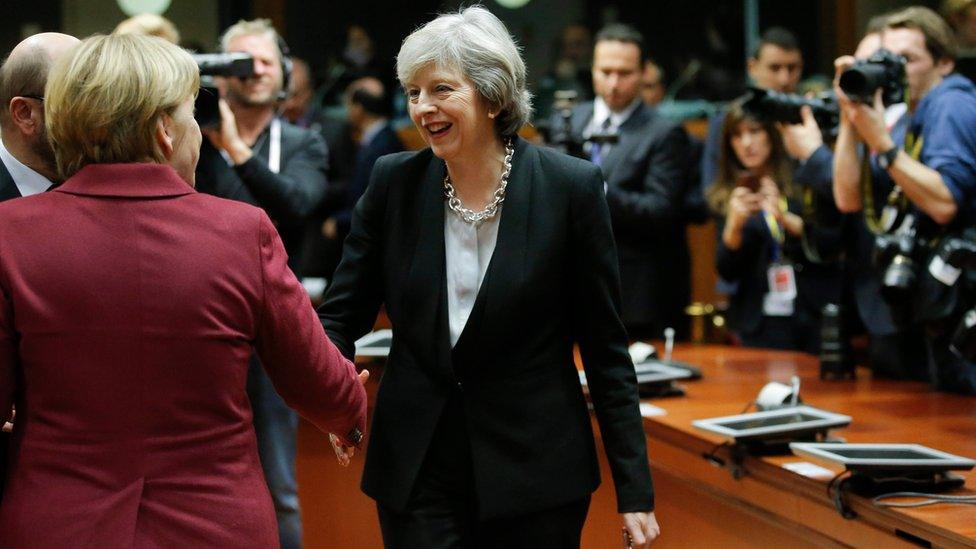
Theresa May greeted foreign leaders including Germany's Angela Merkel in Brussels
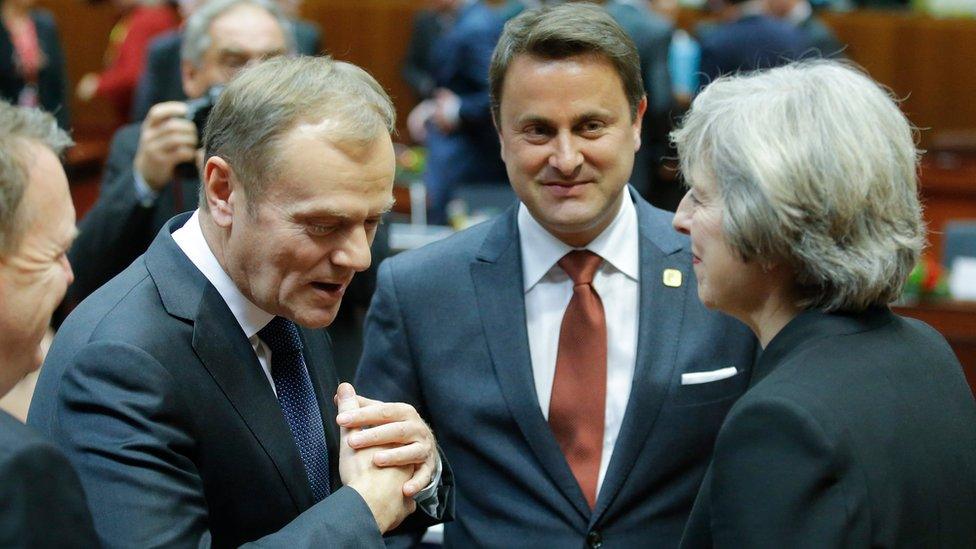
Theresa May chats to European Council president Donald Tusk (left) and Luxembourg's Prime Minister Xavier Bettel at the start of the summit
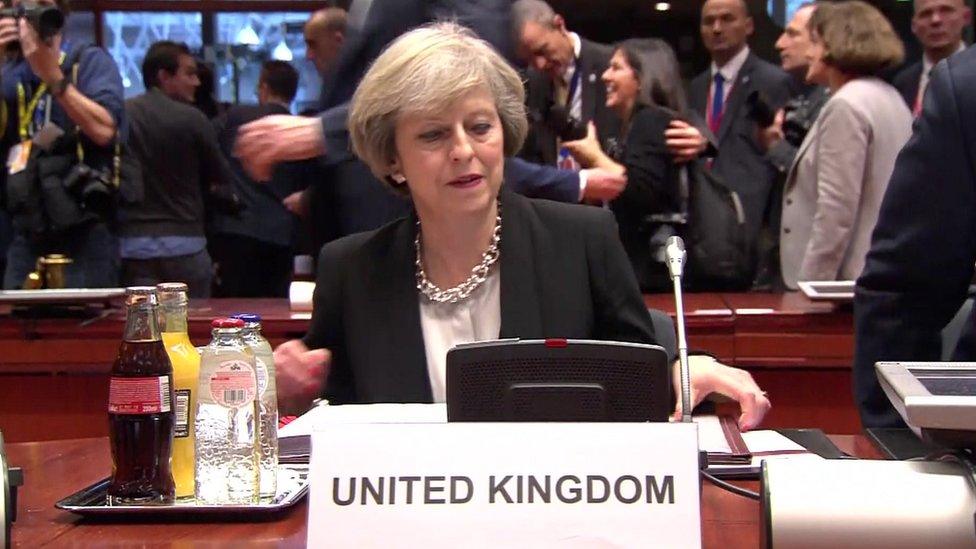
The UK is still a member of the EU, even during the Brexit process
One of the issues to be discussed by the 27 non-UK EU leaders is who will lead their negotiating team, amid tensions between the different EU institutions.
It is expected to be former EU Commissioner Michel Barnier who is in charge of the European Commission's Brexit team.
Former Belgian prime minister Guy Verhofstadt, who is leading the European Parliament's Brexit taskforce, claimed it could start separate negotiations with the UK unless EU leaders take "its role seriously".
He warned the European Commission not to "sideline" the Parliament.
Mrs May spoke to the new Italian prime minister Paolo Gentiloni on Wednesday. She has already held face-to-face talks with 23 EU leaders to brief them on the UK's intentions after June's referendum vote to leave the EU.
The prime minister also spoke to Donald Tusk, the president of the European Council, who confirmed she would update the rest of the EU on the UK's preparations.
A senior EU official said that, by the end of the summit, the 27 would be "procedurally prepared" for the negotiations and there was a consensus that although the process would be led by the Commission, it would be "controlled" by the member states.
It said the 27 were sticking to the principle of "no negotiation without notification", meaning talks could only begin once the UK triggered Article 50.
- Published15 December 2016
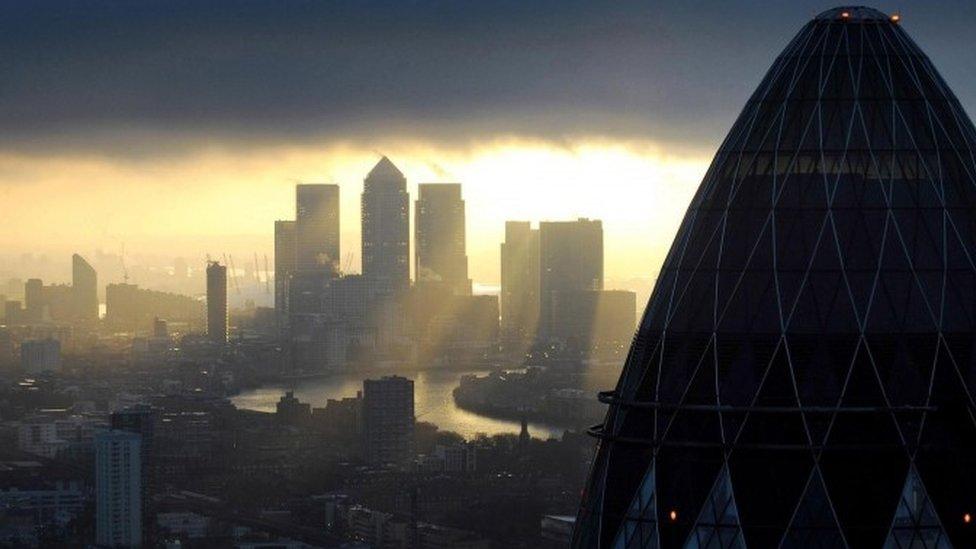
- Published14 December 2016
